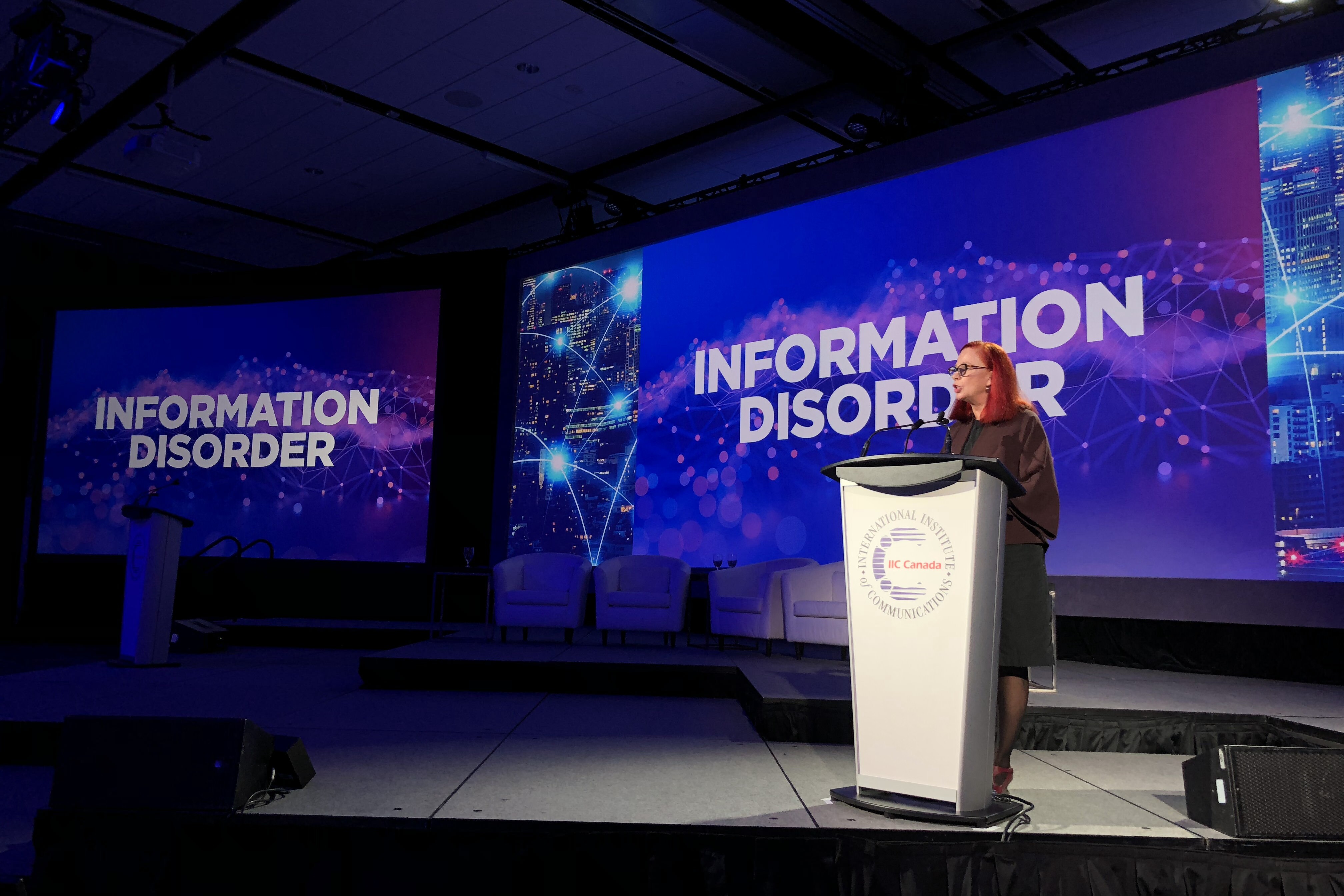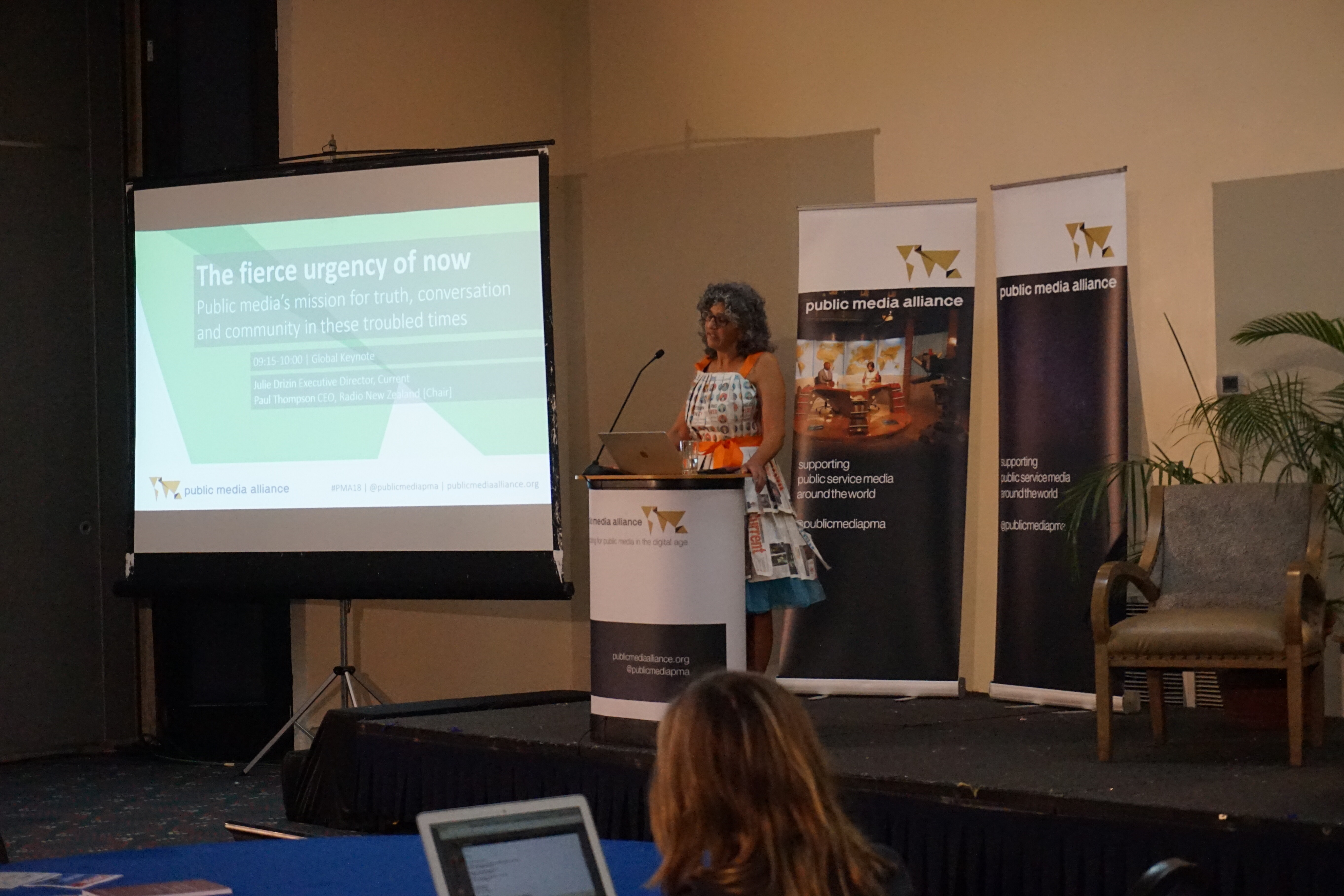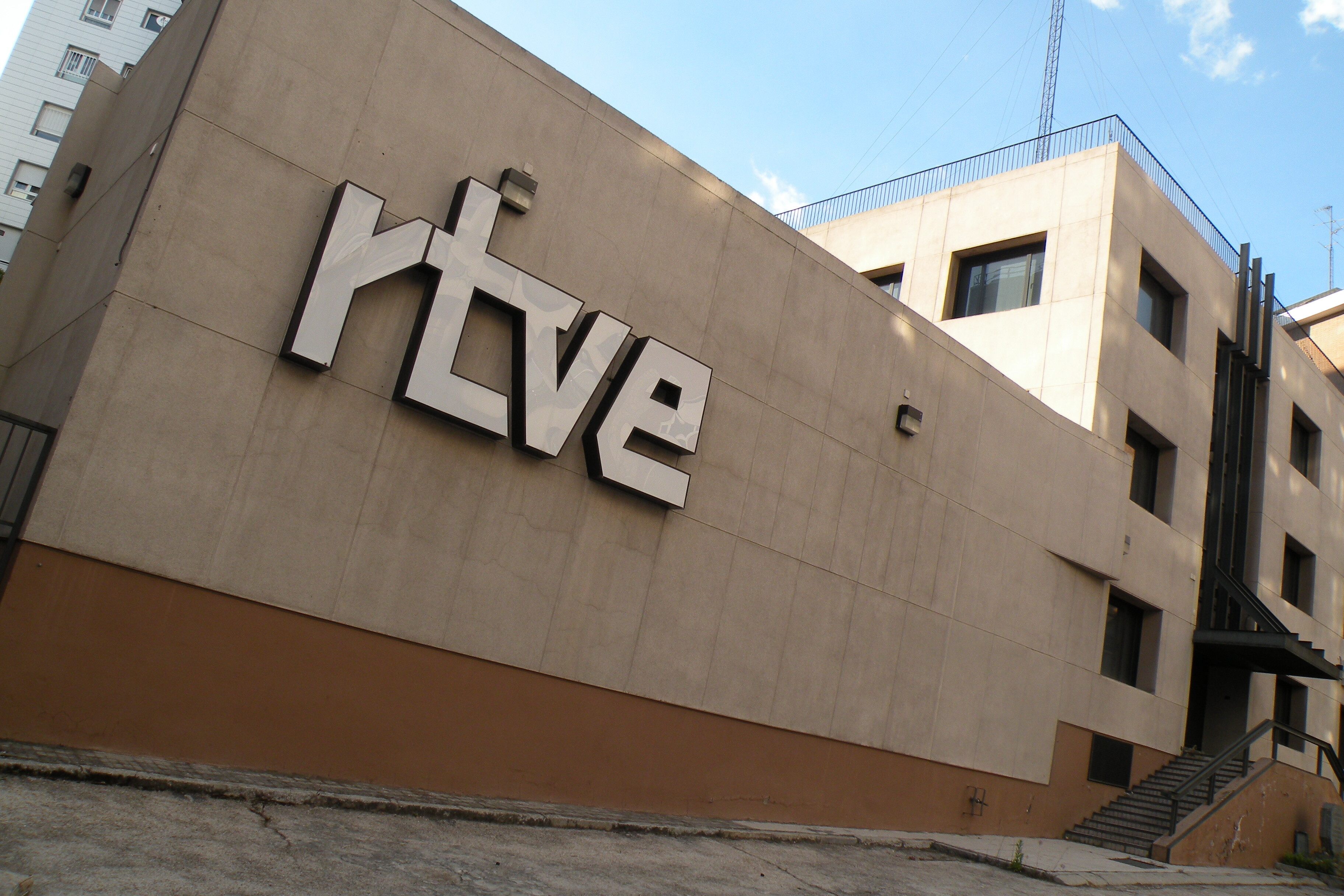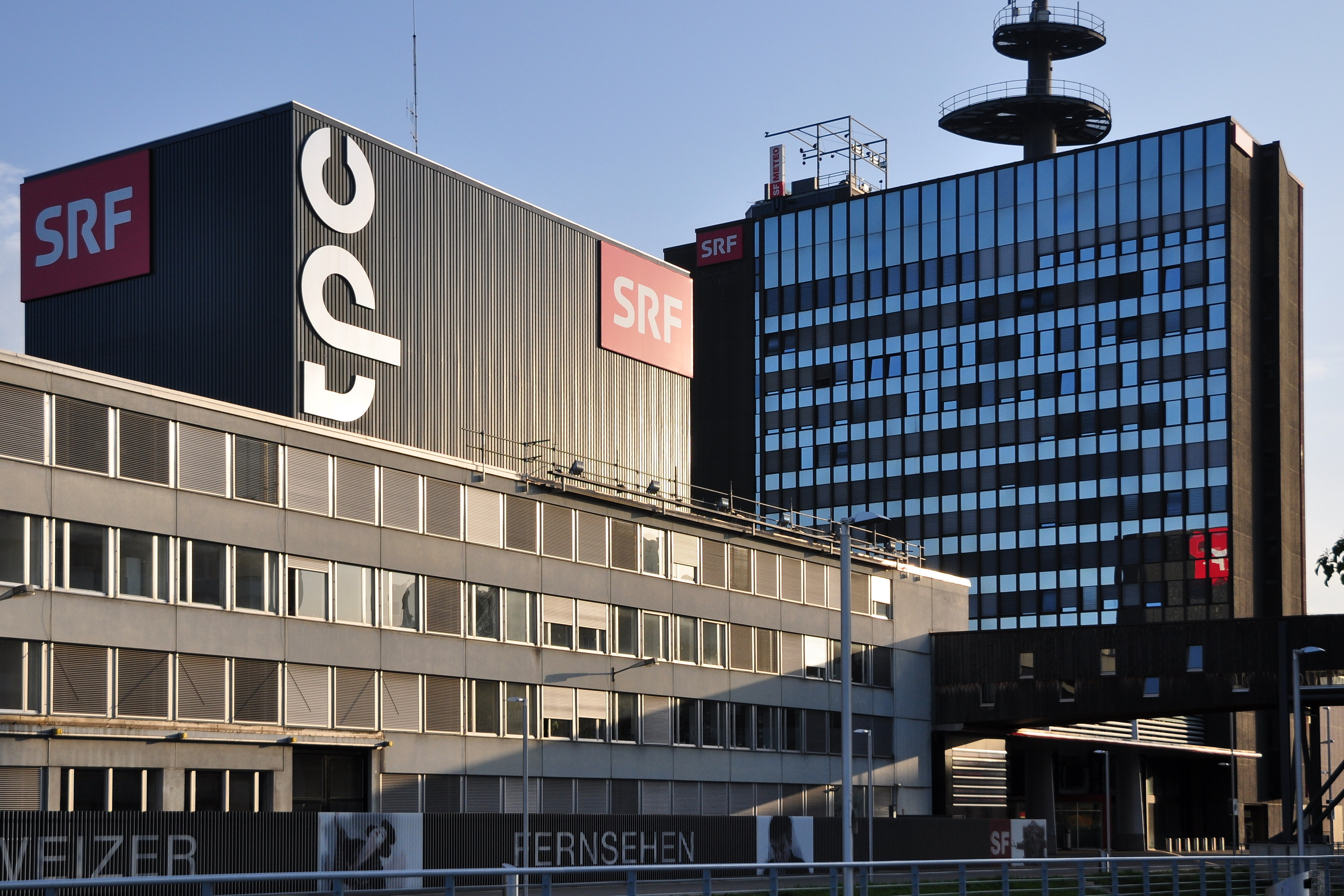By Emily Kasriel | Editor Crossing Divides, BBC
Crossing Divides is an ambitious season. Throughout the BBC in 2019 we are exploring the power and possibilities of encountering people with conflicting opinions, across divisions of race, class, faith, politics and generation.
We’re tackling one of the biggest challenges of our age – polarisation and fragmentation – to support one of the BBC’s public purposes, contributing to social cohesion. We hope Crossing Divides will inspire people to step outside their comfort zone – to listen harder to views they might not agree with – indeed they might never agree with.
Recently, I was in Coventry with the BBC local radio team, who brought together Faisal, who drives a black cab, and Uber driver Barry. Before they met, the two drivers spoke of anger and fear about their livelihoods, the future and each other. I found it profoundly moving to witness the moment Barry and Faisal began to recognise the common humanity across the table. There were even tears and a hug as Faisal left to take his next fare. Interestingly, neither changed their mind.
How will it work?
Psychologists have long known we harbour a deep need to be understood. Once we feel acknowledged, we may be more willing to lower our defensive walls, even by an inch, creating the space for us to hear, perhaps for the first time, an alternative perspective.
Faisal and Barry’s encounter for BBC Coventry & Warwickshire is part of a ground-breaking Crossing Divides project across all 39 BBC Local Radio stations. Each has identified three poignant and passionate local divisions, and will bring together individuals from either side. These 100-plus encounters will kick-start conversations and phone-ins across England.
BBC Wales, Northern Ireland and Scotland are also exploring common ground across multiple divisions, bringing together vegans and meat farmers, Republicans and Loyalists, and asylum seekers and native Scots. BBC Children’s is featuring special CBeebies Bedtime Stories and encouraging older children to text in ideas about how to respond to people who are different with subjects ranging from dinner at the posh girl’s house to going on a foreign exchange.
Changing the narrative
Ordinarily, conflict between individuals and communities is highlighted in the news, in documentaries and drama, because it creates compelling stories. This exposure helps normalise conflict between groups. This type of coverage also can mask the complexity of our identities, reinforcing the idea that a person is one thing or another, rather than recognising we can be Black and British and Muslim, for example. However, when former enemies confront their fears and listen to someone on the other side, it can challenge mindsets and help us reach a deeper understanding of identity.
On TV, the season shines a spotlight on the transformational journeys of individuals in coming to understand a different way of viewing the world. In the BBC Two documentary, Travelling Blind, comedian Sara Pascoe paints rich pictures with words to help blind adventurer Amar Latif witness extraordinary Turkish landscapes. With Amir’s encouragement, Sara emerges from her shell to share experiences with strangers, from beekeeping to mud wrestling.
It’s not just about talking
There are many ways to engage with people across the divide. Our Brazilian Service tells a story from the City of God, the violent Brazilian favela, where the very young and the very old lack affection and attention. They are crossing the generational divide by sharing capoeira lessons, acting classes, and hugs. Our series on BBC Two, Pilgrimage, follows eight personalities with wildly different beliefs and faiths as they travel together on a demanding pilgrimage to see if they can understand each other better. BBC Monitoring discovers a dictionary enabling North and South Koreans to communicate, after decades of conflict caused their languages to grow apart.
This season also hears from people attempting to cross the most intimate divides. A BBC Ideas digital video explores reaching out to a partner when your relationship is on the rocks. Stacey Dooley travels to North East Nigeria to explore how girls who were kidnapped by Boko Haram and then escaping can regain the trust of their families and communities.
Solutions-focused journalism
Crossing Divides has grown out of the BBC News Solutions-focused journalism project. Alongside reporting problems, journalists are encouraged to explore solutions – looking at limitations, seeing whether a solution can scale, and asking rigorous questions. Crossing Divides isn’t all hugs and love-ins. We don’t expect people with vastly different outlooks to agree, or even get on. When they don’t, we tell that story too, like the encounter between an anti-fascist activist from Portland, Oregon, and a member of the all-male far right Proud Boys group. The men agree to sit across a table for an Our World Crossing Dividesdocumentary, and there’s a tangible sense of danger, fury and contempt.
Our Stories
We were encouraged to create this season across the BBC after the success of our week-long News pilot in 2018. Our Stories attracted more than 5million page views, and in excess of 300,000 comments, shares and likes on social media.
We broadcast the moving tale of Indonesian ex-child soldiers on opposite sides of a bloody conflict. Ronald Regang, a Christian, and Iskander Slameth, a Muslim, met after the end of the conflict at a trauma healing centre for child soldiers.
Once sent out to mutilate and murder others of a different faith, today they help keep a fragile peace on their island, Ambon. Following the BBC report, the two friends became national heroes, and a larger-than-life mural of the pair appeared in Ambon City, inspiring the community.
One of the challenges of Crossing Divides is finding ways to help individuals and communities who share common spaces but rarely interact.
Crossing Divides aims to spark conversations across divides. BBC News Labs and BBC World Service build on a successful pilot to create an interactive comic in which you can have a conversation with a virtual character who has different ideas about controversial topics such as Brexit, immigration or gun control.
One of the challenges of Crossing Divides is finding ways to help individuals and communities who share common spaces but rarely interact. We’re partnering with public transport companies across the UK for a Crossing Divides on the Moveday in June, encouraging passengers to have conversations with strangers. Meanwhile, our Common Ground project will pair up thousands of people who live nearby each other and have opposing political perspectives for face-to-face conversations, almost a tinder for politics.
We’re not endorsing particular solutions to fragmentation or implying that power relations can be equalised through an encounter. The ambition is to create more understanding. For each one of us, exposing ourselves to ideas which may challenge our core beliefs and the sense of who we are can feel like a risky endeavour, exposing ourselves to ideas which challenge our core beliefs and the sense of who we are – especially if we feel our community is under threat. But in doing so, we may discover our identities are more complex than we thought, with contradictions previously kept hidden, even from ourselves. We may realise we share beliefs, experiences and even values with enemies we feared or strangers we dismissed.
As part of the BBC’s new #CrossingDivides series, @BBCNewsNI will be hosting a discussion involving pupils from @stmarysderry and @BallyclareHigh on Monday on #Brexit and the political impasse here. It will be broadcast live on the BBC News NI website and Facebook page from 12pm. pic.twitter.com/ciJlN1dZSS
— BBC News NI (@BBCNewsNI) March 3, 2019
For this season, we have drawn on the work of Miles Hewstone, Julie Van de Vyvert, Libby Drury, the Behavioural Insights Team, British Future, More in Common, Conciliation Resources, Jonathan Haidt as well as the Hedrodox Academy, Douglas Stone, Amanda Ripley, Solutions Journalism Network and Better Angels, who have a track record in negotiating successful conversations between Republicans and Democrats.
Header Image: BBC head office and square in front of main entrance with walking people. Credit: IR_Stone/iStock
Related Posts
1st November 2018
Insight | Disruption, Trust and the Public Broadcaster
President and CEO of CBC/Radio-Canada,…
26th June 2018
Insight | RTVE public contest faces further challenges
After an arduous process, a reform to…



